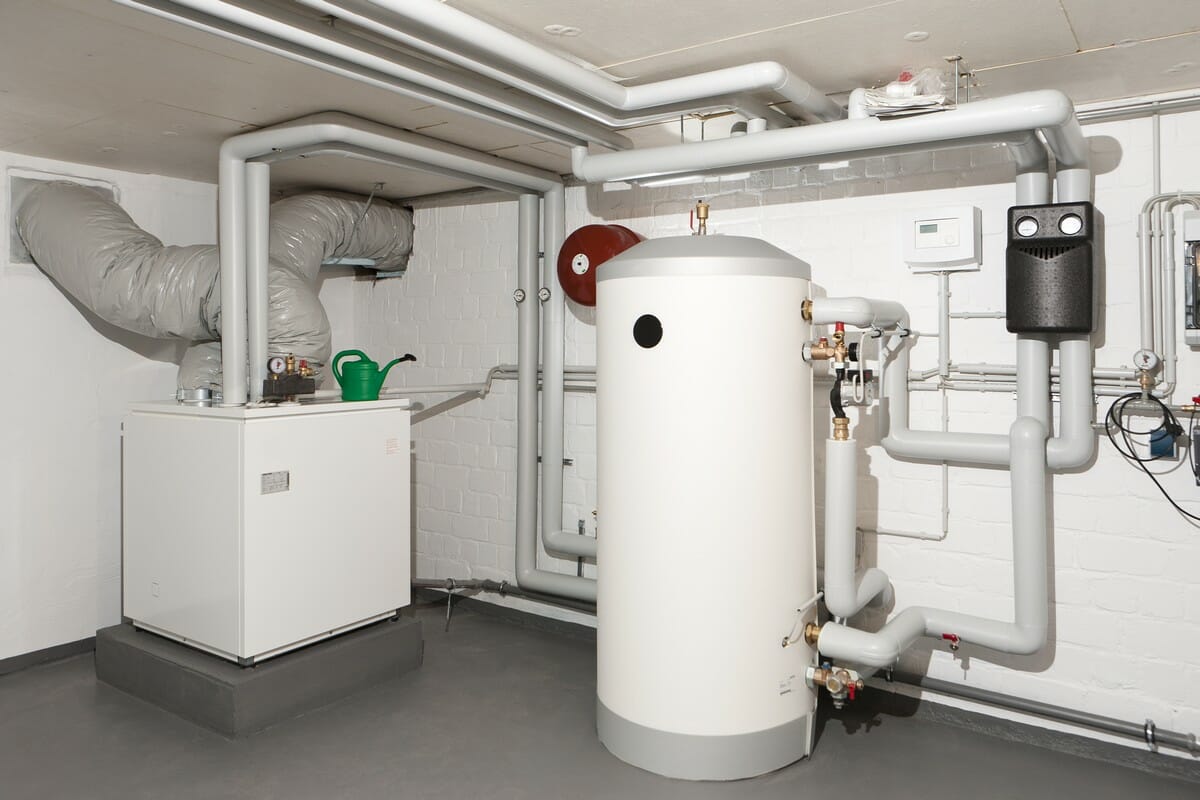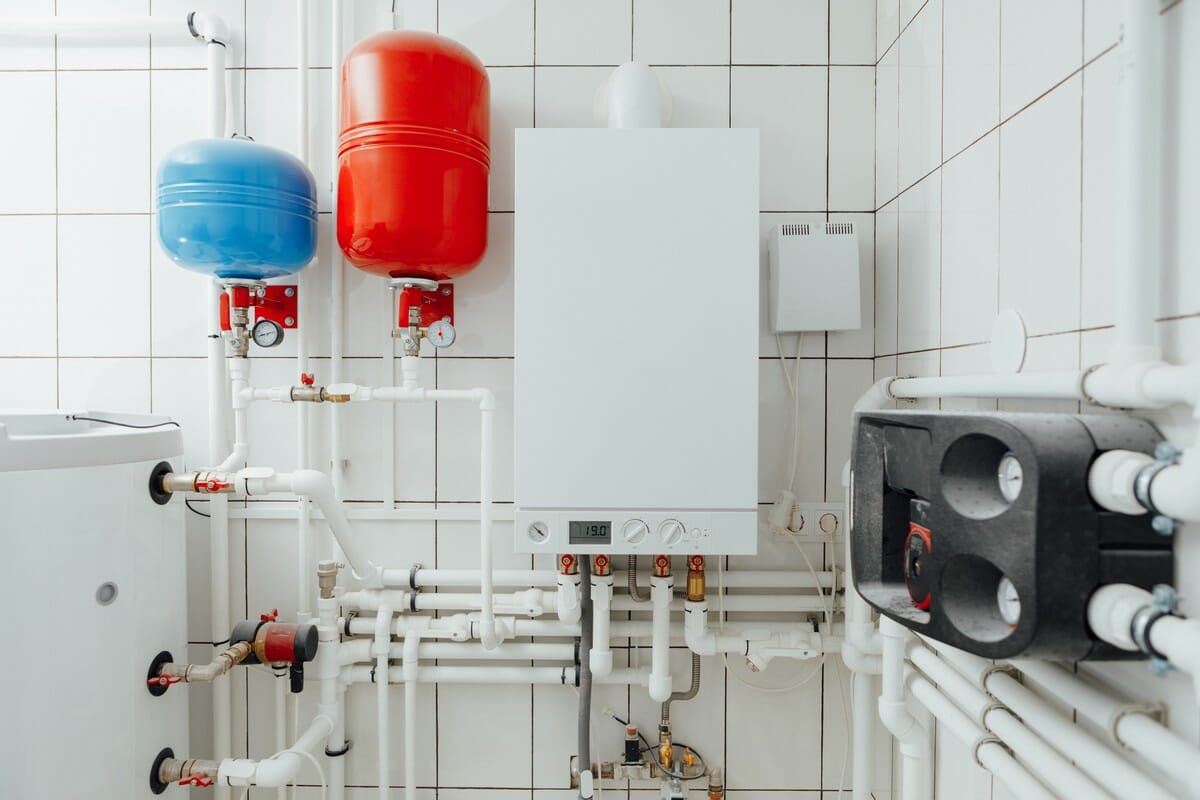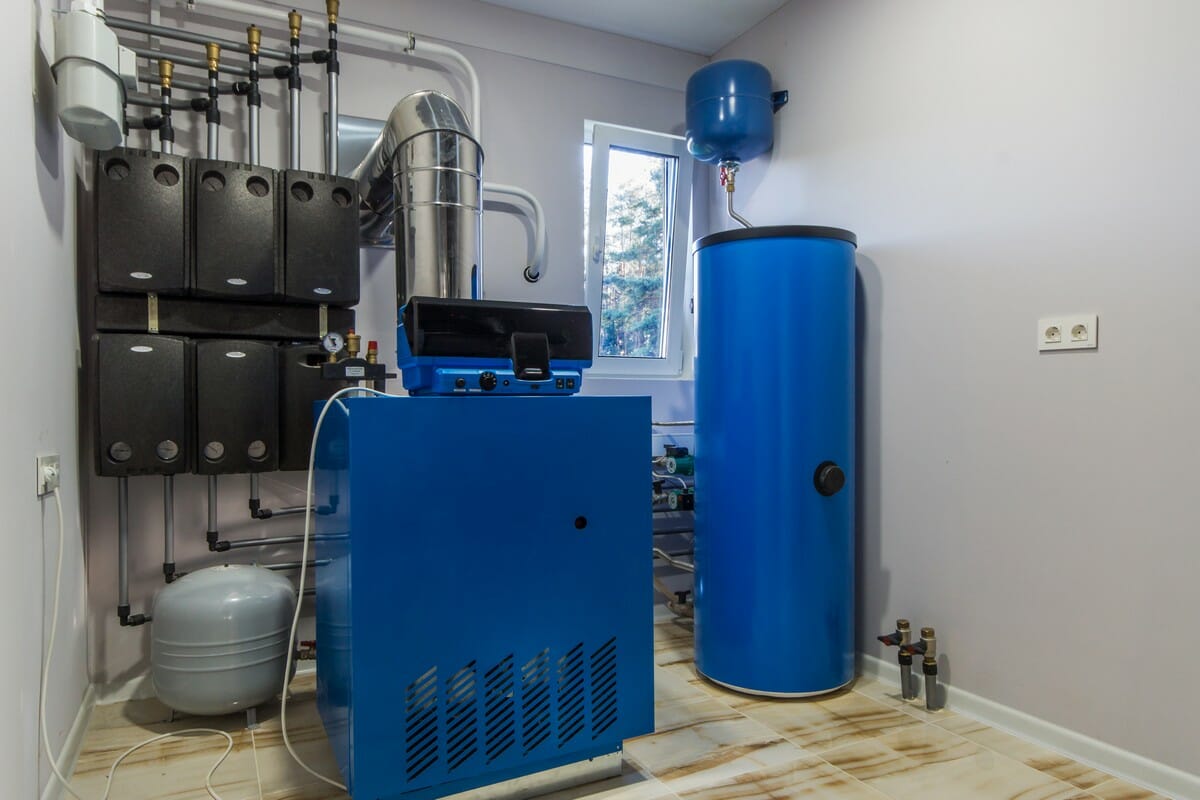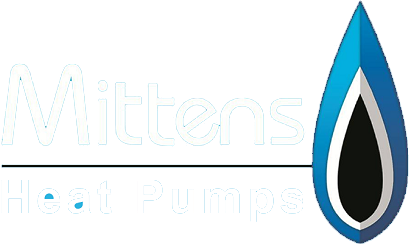Heat Pumps Education
Table of Contents
- 0.1 - Types of heat pump systems
- 0.2 - Our Guarantee
- 0.3 - How would you choose the best heating system for a house?
- 0.4 - Greener and cheaper ways to heat your home
- 0.5 - Why look at alternatives to gas boilers?
- 0.6 - Why heat pumps should replace gas boilers in commercial buildings
- 0.7 - Can I get a grant to replace my boiler?
- 0.8 - How much could I save if I replace my boiler?
- 0.9 - Heat Pump Type
- 0.10 - How to improve your EPC rating
- 1 - Are heat pumps a cost-effective heating alternative?
- 2 - Dual-source heat pump systems
A heat pump system is a device which transmits heat from one region (heat source) to another (heat sink) using mechanical work or a heat source at high temperatures. The machine uses either a heat pump for compression or a heat pump for absorption at home, business or otherwise.
Most modern heat pump systems directly distribute the heat to the indoor air, or to groundwater or heating (radiators) vapour. The heat pump system sources heat from water (by coil A) while at the same time rejecting it to a sink of water heat (by coil B) and either heat or cools a space or process.
Heat pump sources for heat from different sources of water. For instance, wastewater, single or double well, lake, pool, including cooling tower are many sources of water. These heat pumps use less electricity than other heat pumps but, without proper maintenance, operating costs increase dramatically.

Types of heat pump systems
Types of heat pump systems are classified by their sources as follows:
- Ground-source heat pumps
- Water-source heat pumps
- Air-source heat pumps:
- Geothermal heat pumps
Our Guarantee
- Over Six Years Experience
- Unrivaled Experience
- An Exceptional Service
- Unbeatable Value For Money
- Industry-approved Scaffolders
- A Full Range of Heat Pumps Services
- Professional, Reliable and Diligent
- 100% Safety and Satisfaction
How would you choose the best heating system for a house?
To begin with, you have to describe ‘value’. Was the capital expense important to the system? Or does the cost of the long run take precedence? Do you wish to be environmentally friendly, even if purely financially it costs more? Do you have an attractive or historically significant property where some kinds of modern technology would damage its appearance or structure? And so forth.
The local climate also makes a big difference. And of course, if you’re not on the gas grid, you can’t burn gas and you probably won’t be able to generate and save sufficient electricity for heat pumping if you’re not on the power grid.
You could go for a heat pump if you start from scratch in the UK because the temperate is cold and the outside temperature is usually above freezing and very rarely below minus 10C.
Perhaps you could go for an air-to-air system, otherwise called air conditioning. Heat pumps are most efficient when the temperature of the source and the temperature of the destination differ the least. Air-to-water heat pumps must make the water hotter than the desired internal temperature so that the radiators can emit substantial heat levels.
That lowers performance. If you live with very cold winters somewhere, like your only heat source, a heat pump of any sort will probably not be satisfactory. On the coldest days, you’ll require supplemental ventilation. You may use storage fuel (oil or LPG) to operate even though the power has been cut (the boiler’s backup battery electricity, or a stove or fire which does not require energy to function). Extreme cold very easily becomes a life hazard, and can come with the kind of weather that blocks out evacuation option!
Greener and cheaper ways to heat your home
It’s not surprising with rising energy prices that many people are looking for efficient ways to heat their homes and reduce their fuel costs. So what’s the cheapest and most green way to heat up your home?
One of the fastest and cheapest ways to cut CO2 emissions from your home or business is to switch to a green renewable electricity supplier. The efficiency of oil-fired boilers has improved, but oil prices, like other fossil fuels, can fluctuate considerably. Though bio-oils and biodiesel are beginning to evolve, they are still not commonly available.
Why look at alternatives to gas boilers?
Gas boilers are used to supply residential and industrial property with hot water and heating. The boiler that uses gas in the process of heating the water that runs in the central heating system is connected to the supply of the mains gas, which is pumped through pipes and radiators to provide direct heat and hot water within the property.
An efficient boiler is less likely to waste fuel, making sure on your heating bills that you get value for money. A gas boiler service will ensure that your boiler runs at its optimum efficiency, will cost you less and will reduce your carbon footprint. Thank you both to your bank manager and to Mother Nature.
We Are Also Available to Offer Heat Pumps Related Advice
Why heat pumps should replace gas boilers in commercial buildings
Air pumps use the same equipment as fridges and freezers. They share heat between the inside and outside of the houses, providing winter heating, and summer cooling. These are especially useful as heating and cooling can be provided by one heat pump, thereby providing an easier way of enhancing the building environment.
The use of a heat pump rather than gas boilers for heating and cooling can reduce the cost of ventilating commercial buildings by 25% and provide a golden opportunity to improve the quality of city air. Such results are found in a new survey, released on the basis of research data on 600 buildings in Europe, Asia and North America, covering offices, shopping centres, factories and airports.
Can I get a grant to replace my boiler?
Free, heavily subsidized replacement boilers are available through ECO which is a government scheme that was set up to help low-income households to easily access home efficiency improvements in reducing their home heating costs and reduce their carbon footprints. You could qualify if you meet the criteria related to benefits and your current boiler is at least 5 years old (not condensing). It is just as simple as this.

Under the ECO Scheme for Governments in 2020, qualifying homeowners could have their old inefficient boilers replaced completely free of charge, or subsidized heavily. If you qualify, you will be contacted by an approved company to finish installing your new boiler free of charge.
How much could I save if I replace my boiler?
If you use a gas-fired boiler with radiators, you’ll spend an average of 55% of your bill on energy by heating water. With more than £1,340 average dual fuel bill coming in a year, that’s a big chunk of money to invest in keeping your home warm.
A household switching from an older rated ‘G’ boiler will save on average £340 per year by upgrading to a newer rated ‘A’ boiler, according to the Energy Saving Trust.
The larger your home, the more you could save, with research showing someone in a detached house switching from a rated G to A appliance could save as much as £570 annually.
Heat Pump Type
How to improve your EPC rating
- Upgrade your lighting to LED light bulbs
If your EPC rating is right at the margins, and it won’t take much to lift it up to one or two ratings, switching to LED light bulbs – which are much more energy-efficient and environmentally friendly – could make all the difference
- Isolate the walls and roof
One of the most common and inexpensive measures of energy efficiency, and likely to cost you less than alternative upgrades, new insulation can be a particularly efficient way to increase your performance, especially if the insulation was weak or missing before growing insulation in the loft to a thickness of at least 270mm would have a huge effect on the amount of energy that escapes through the roof. Usually, an uninsulated roof loses up to 33% heat through the air!
- Invest in double or triple glazed windows
If you neglect the windows of the property there is no point in investing in the latest heating and insulation technologies. On the other hand, double glazing doesn’t affect the EPC as much as a wall or loft insulation. But it reduces the amount of heat lost through the windows.
- Installing a more efficient boiler heating systems is the cornerstone of EPC rating for a property. Depending on the age of the existing boiler, switching to a newer, condensing model can improve your rating significantly.
- Install a smart metre. Although the government has failed in its goal of getting a smart metre in every UK home by 2020 and there are some issues involved with it, they are a good way to tell your tenants how much energy they are using and modifying their behaviours accordingly to reduce their energy bills and become less wasteful.
Are heat pumps a cost-effective heating alternative?
Costs for heat pumps, including construction, can differ considerably based on the form of a heat pump. Heat pump costs vary from £20,000 to £40,000, while prices for the air supply heat pump range between £8,000 and £18,000.
The main factors that determine the total cost of the heat pump and installation are the system price, and whether additional heating sources such as underfloor heating systems or huge radiators are part of the solution.
Owners with preferences for completely green heating solutions often choose to combine a heat pump with solar panels to avoid conventional alternatives to the heating. The running costs are assumed to be low in such situations, especially when considering national and local funding. In contrast, the price of LPG, gas and oil fluctuates and is expected to remain relatively high in the future.
An Energy Star gas furnace is the perfect alternative for low cost, efficient heating. So whether you either have a boiler or a new one is being installed, you like the concept of in-floor heating, a boiler makes the room very cosy.
Dual-source heat pump systems

Two arrangements were studied in detail: heat pumps from air source combined with solar collectors; and heat pumps from the ground source coupled with solar collectors.
In addition to a situation where solar collectors are solely devoted to direct heating, the solar system can be used in either a series or a dual-source scheme with the heat pump.
A higher COP can be achieved when setting up in series but frequently there is a lower free energy fraction. This is due to the lack of direct solar heating, which means that ancillary energy is more frequently required.
What are the alternatives to gas central heating?
If your home doesn’t connect to the main gas grid, then what? What options do you have this coming winter for warming up your home? Consider these alternative sources of fuel:
- Oil central heating
An oil boiler heats water and then run through your pipes or underfloor to heat up your radiators and supply your hot water taps.
Your boiler can only be a heat or a combination boiler, but the oil must be delivered by road to your home and stored in a tank outside your property. (Your petrol provider will need to rent or purchase the tank).
- Liquid petroleum gas (LPG) central heating
LPG is another important alternative fuel source for up to four million UK who are homes not connected to the national gas grid. LPG is supplied by road and placed in a tank outside your house, using a ‘wet’ method – where water is pumped, and then heats up your home by pipes.
- Electric central heating
Immersion heaters enable you to heat your home using electricity, without the need for an additional fuel source such as gas, oil etc. They work a bit like a kettle, with a metal coil heating up the hot water (usually in a tank or a cylinder).chat with your electricity provider to let them know you’ve got an electric boiler as your home’s primary source of heating.
- Solar driven central heating solar heating systems will save you significant sums for the year on your energy bill since you’re basically “self-generating.” You are your own energy supplier and less reliant on energy sources with prices fluctuating according to the forces of supply and demand. To generate energy for your home, you have options to choose from solar panels, heat pumps, wind turbines and wood-burning stoves.
Get in Touch With us for Your Heat Pump Hire Quotes
